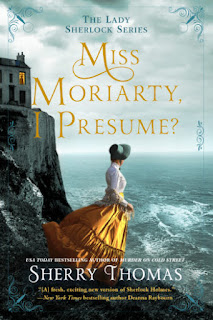 Isaac Asimov: A Life of the Grand Master of Science Fiction
Isaac Asimov: A Life of the Grand Master of Science Fiction by
Michael White
My rating:
3 of 5 stars
During this fourth quarter of 2021, the Dead Writers Society has chosen Isaac Asimov as one of our featured writers. I read his Foundation trilogy and some Robot novels way back when I was a teen, and I reread several in 2011 when I started my Science Fiction and Fantasy Reading Project. I was reading fast in those days and not necessarily processing too much.
It seemed to make sense, then, to find a biography of Asimov and get some perspective on this author who became one of the founders of the science fiction genre. He seems to be one of those people that inspire strong feelings, love him or hate him. Interestingly, I read a biography of Ray Bradbury earlier this year and I got much the same feeling about him. Both men really seemed to want to be the centre of attention. You can almost imagine them saying, “Me, me, me, look at me!” I think both of them were a weird combination of overly egotistical and very insecure. Neither one of them was truly selfish, but they were both very self-focused. It took a lot to get them to actually consider other people's points of view.
I hadn't truly realized how young Asimov was when he wrote
Foundation and
I, Robot. It's amazing that something produced by such an inexperienced young man would still have some relevance today. The human characters are rather wooden, but the robots are more lively! Just the opposite of what you would expect. If you read for relationships, Asimov's books are not going to be among your favourites. He was much more interested in big ideas and scientific principles. In many ways, nonfiction was the perfect genre for him and I was surprised by how many nonfiction books he churned out.
I think Asimov was a product of a patriarchal system that led him to discount women, unless he knew them personally and could therefore appreciate their intellect or talent or humour (or whatever caught his respect). Understandably, many women didn't like being dismissed and disliked Asimov intensely (and with reason). I do think that he dismissed many men in exactly the same way, but the men didn't take it as personally perhaps. I also read Ursula le Guin's
No Time to Spare: Thinking About What Matters this year and recall an award that she turned down, despite the fact that she knew it would go to Asimov and she also disliked giving him another accolade. She was no fan, considering him a conservative asshole.
This biographer calls Asimov a liberal, but in these days of Me Too, the “man with a thousand hands" would be having a hard time of it. He didn't always realize that if a thing applied to him, it should apply to everyone and vice versa. He could be absurdly outraged when someone else got the same consideration or same advantage that he had benefited from.
In short, he was as imperfect as we all are. I think we all have one of those friends with high intelligence but no idea how to deal with people. What amuses me is how often psychologists of one kind or another feature in his writing. His robot characters require them more often than the humans. His human characters are so coldly logical in their dealings that they verge on the robotic. Perhaps emotional, illogical people were more difficult for him to deal with.
View all my reviews





























